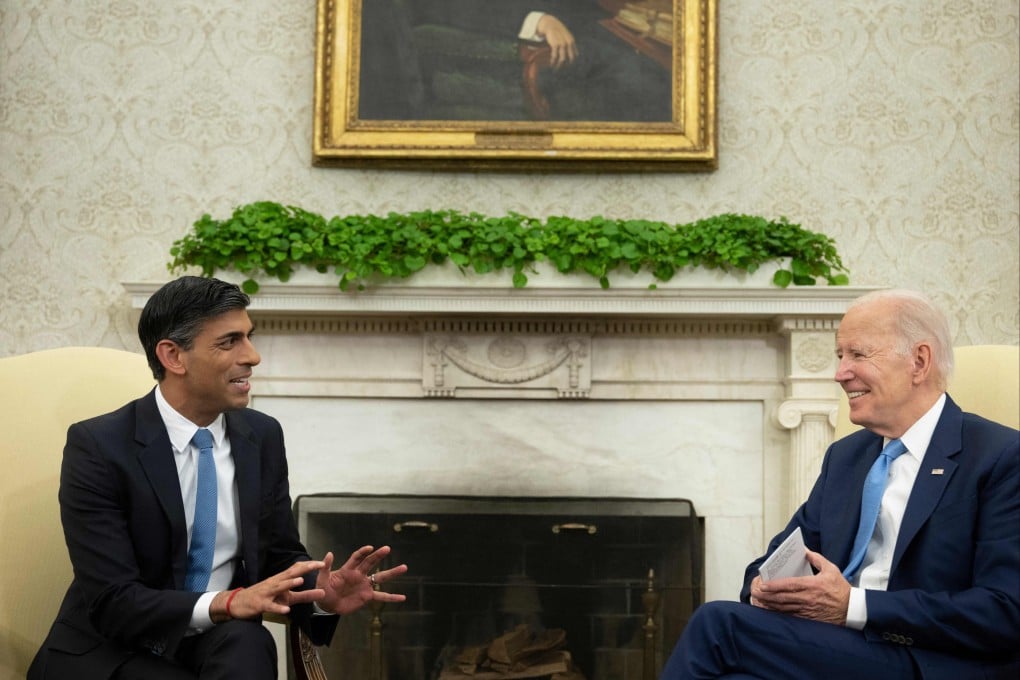Advertisement
Opinion | The critical minerals supply chain is the new front line of US-China rivalry
- The ‘Atlantic Declaration’ with the UK is just the latest US move to disrupt China’s dominance in the production and supply of critical minerals
- As Washington looks for mineral alliances and Beijing doubles down on boosting its mining and reserves, expect a fresh bout of intense global politicking
Reading Time:3 minutes
Why you can trust SCMP

On British Prime Minister Rishi Sunak’s recent visit to the United States, he and US President Joe Biden announced an “Atlantic Declaration” for enhanced cooperation, which covered three important areas: clean energy, critical minerals and artificial intelligence (AI).
Advertisement
The declaration aims to kick-start negotiations between the two countries on rare and critical mineral supply chains. At the heart of this deal lies the proposal to extend tax benefits under Biden’s Inflation Reduction Act to minerals essential to the electric vehicle industry that are mined or processed in the United Kingdom.
In the declaration, Biden said he would urge Congress to add the UK as a “domestic source” in the US Defence Production Act. This would give British suppliers better profit margins and terms, strengthening their position in the global marketplace.
The declaration’s provisions also highlight the shift in the global political landscape to take account of the increasing role of AI and its allied apparatus. In recent months, deliberations on the far-reaching implications of AI and its impact on global power dynamics have become a fixture on the agenda of international diplomatic gatherings.
Not surprisingly, the discourse is coloured by the US-China polarisation, largely stoked by a Washington increasingly fixated on what it sees as China’s hegemonic inclinations. There are distinct dimensions to the debate: the global AI regulatory framework, and the intricacies of AI supply chains. In particular, the US and its allies fear China’s potential supply-chain dominance over semiconductors, as well as critical minerals.
Advertisement
These essential components form the bedrock of pivotal industries, enabling the production of electric vehicles, batteries, computers and myriad household electronic devices, all interwoven into the realms of AI and green energy.

Advertisement
